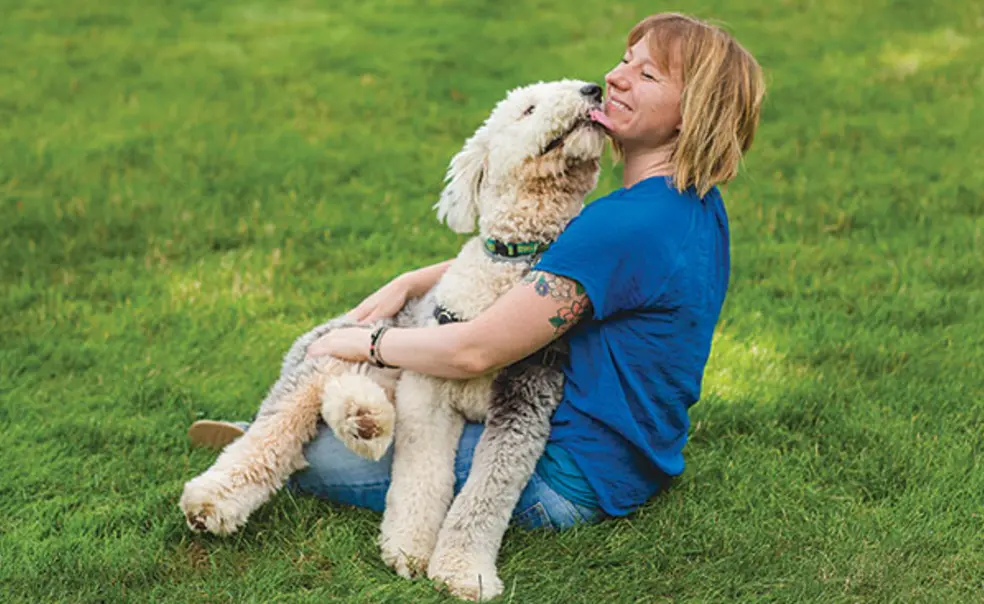Ecology And Evolutionary Biology: Domestic Dogs’ Affability May Be Thanks to a Genetic Boost
Dogs may be our best friends today, but the wolves from which they descend have a more guarded relationship with humanity. Even compared to wolves raised by humans, dogs are more inclined to seek physical contact and assistance from humans and show more interest in strangers.
Princeton biologist Bridgett vonHoldt has spent her career searching for a genetic explanation for this social difference — what she calls “the genes that make a dog a dog.” During her Ph.D. studies, she found that dogs and wolves diverged in a region of DNA responsible for Williams-Beuren Syndrome (WBS) in humans. WBS is a developmental disorder caused by a genetic deletion in this region, and affected humans tend to be extremely social, talkative, and empathetic.
The similarities between WBS and the dog-wolf difference intrigued vonHoldt, an assistant professor of ecology and evolutionary biology. So she asked her thesis student Emily Shuldiner ’16 to correlate the gene sequences of individual dogs and wolves with observations of their behavior. Shuldiner and collaborators at Oregon State University found that dogs’ human-directed hyper-social behavior was associated with specific genetic sequences that were duplicated in the WBS region.
VonHoldt hypothesizes that ancient humans, by sharing food and shelter with the friendliest wolves, were unknowingly selecting for canines with more of these genetic insertions. “This selection could easily have created early domestic dogs,” she says. Their descendants, our dogs, now carry the same genetic markers.
To see how natural and human selection have changed the dogs’ genes since then, as they took on larger and more diverse roles in our lives, vonHoldt next hopes to sequence dog DNA from dog remains thousands of years old and from different modern breeds around the world. “Do toy breeds have more of these mutations than hunting dogs?” she asks. “And can we find out what was happening in these genes 10,000 years ago?”












No responses yet